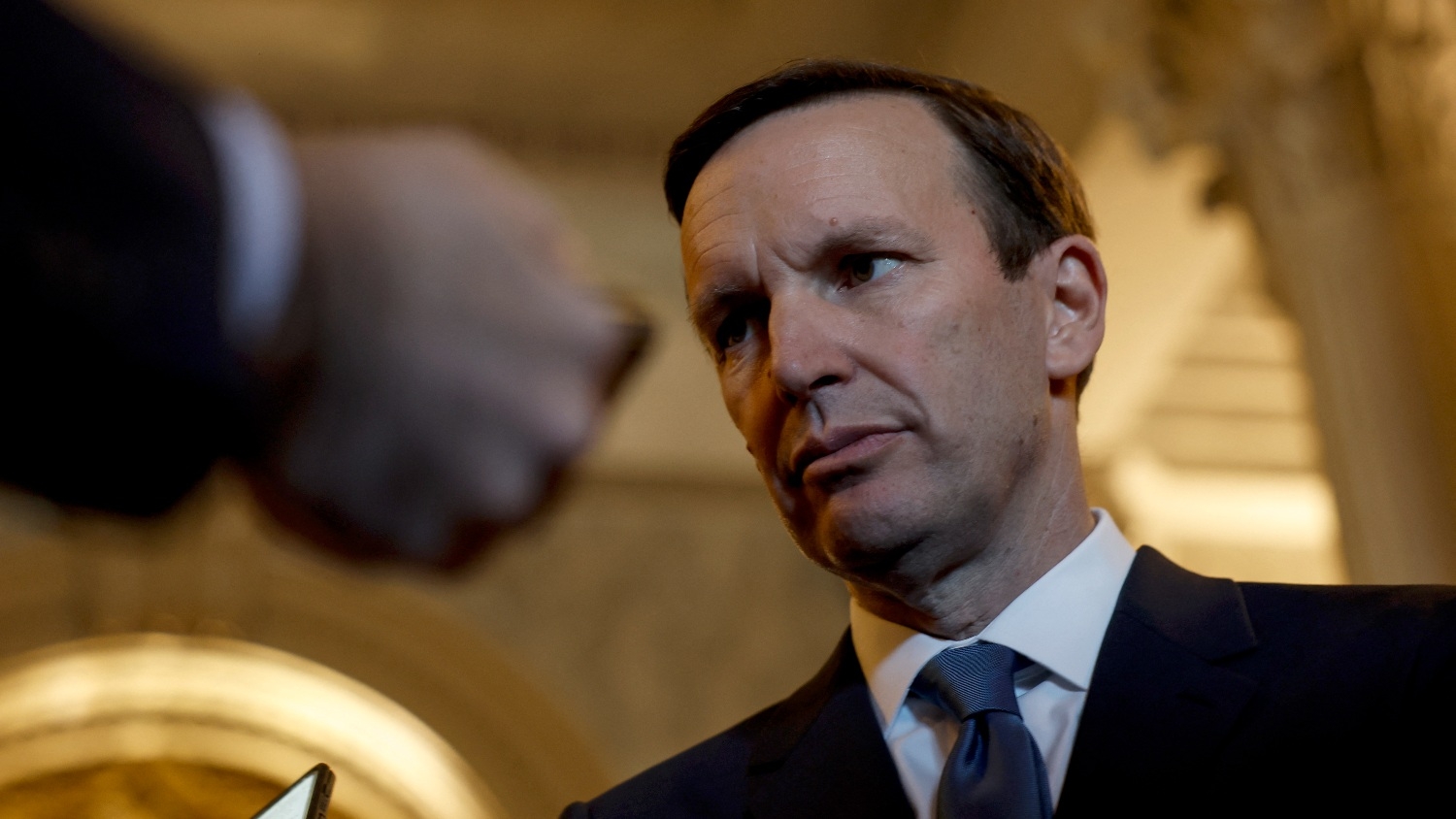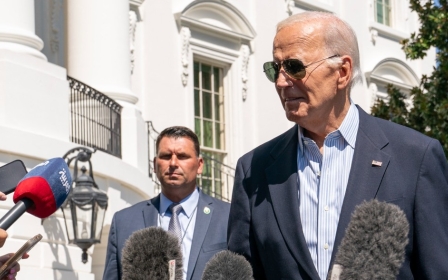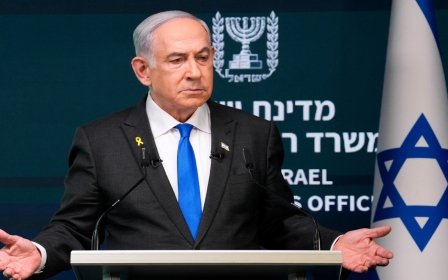Netanyahu's hold on power rests on avoiding Gaza ceasefire, US senator says

US Senator Chris Murphy said on Monday that Israeli Prime Minister Benjamin Netanyahu has a vested political interest in avoiding a ceasefire in Gaza, and that his coalition partners would likely not stand for a deal that includes releasing "Hamas prisoners".
"It's very difficult given the fact that for both the Israeli government, Netanyahu's government, and for Hamas, there's political upside in not signing a ceasefire," the Democratic senator from Connecticut said during a discussion on the future of Democratic foreign policy at the Atlantic Council.
"Netanyahu's hold on power may ultimately be dependent on him not signing that ceasefire agreement."
Murphy, who serves on the US Senate Foreign Relations Committee, added that it was unfortunate, but he believes that Hamas is gaining more "global support" as the war continues and that is preventing the Palestinian armed group from signing a deal.
In early September, US President Joe Biden also said he didn't think Netanyahu was doing enough to secure a ceasefire deal. But the sentiment that Israel is holding back negotiations goes against the broader narrative the Biden administration has for months maintained, which accuses Hamas of stymieing a deal.
New MEE newsletter: Jerusalem Dispatch
Sign up to get the latest insights and analysis on Israel-Palestine, alongside Turkey Unpacked and other MEE newsletters
The past few weeks of negotiations for a ceasefire deal have hinged on demands by Netanyahu that Israel maintain control of the Philadelphi Corridor and the Netzarim Corridor.
The Philadelphi Corridor is a 14km-long, 100-metre-wide demilitarised buffer zone along the border between Gaza and Egypt, established by two Egyptian-Israeli agreements in 1979 and 2005, while the Netzarim Corridor is a 6km stretch of land dividing northern and southern Gaza that was established by the Israeli military during the current war on Gaza.
Netanyahu has repeatedly vowed Israel will retain control over these areas and maintain a military presence at the Rafah border crossing, a crucial lifeline for aid and commercial goods that has been closed since early May.
Murphy, who also serves as the top senator on US foreign policy in the Middle East, did not seem optimistic about the prospects of a deal between Hamas and what he called the US's "sacred ally", Israel.
"We have been waiting with bated breath for an announcement of a ceasefire for months, and every month we don’t achieve it, it feels less likely."
Murphy told the Washington Post on 8 September that "most days, it's pretty clear the Americans are working much harder [toward a ceasefire] than the Israeli government is working at this."
'Netanyahu is rooting for Trump'
Looking ahead at the upcoming November election Murphy said that both Israel and Hamas may not see it as in their political interest to deliver a deal by election day.
"This is speculative, but it is not hard to believe that Netanyahu is rooting for Trump. It is not hard to believe that Netanyahu may not want to deliver any type of diplomatic victory to the Biden administration in the weeks leading up to the election," Murphy said.
Murphy added that he hopes Netanyahu's decisions are in the interest of Israel and regional security but said you don't have to be "deeply cynical" to believe he may be making decisions that are in part designed to affect US political dynamics.
Netanyahu visited the US in July this year to address Congress, but during the trip he also made a point to meet with presidential hopeful Donald Trump.
Trump gave the Israeli prime minister a warm welcome at his Mar-a-Lago resort in Florida.
"Come on, let's get a good, beautiful picture," Trump said at the time, pulling Netanyahu into his chest for a tight handshake and greeting his wife Sara Netanyahu with a kiss on both cheeks.
The meeting was the first between Netanyahu and the former US president in four years.
Trump and Netanyahu enjoyed a close relationship during the former's term in office, but hit a rough spot after Netanyahu congratulated Joe Biden for his 2020 election win, refusing to side with Trump's debunked claims that the election was stolen from him.
"F**k him," Trump told Axios at the time.
Trump appeared to have moved past the episode, saying that he "always had a very good relationship" with Netanyahu. The tone of Trump and Netanyahu's meeting contrasted sharply with that of the Israeli leader's meeting with Vice Presisent Kamala Harris.
There has been some speculation that Democratic presidential nominee Harris would be more sympathetic towards Palestinians but she has been clear about continuing US policy of supporting Israel and its "right to defend itself" - whether that means diplomatic support or rejecting the notion of conditioning arms sales to Israel.
Trump has painted Harris as anti-Israel, going so far as to say: “If they [Democrats] win, Israel is gone. Just remember that. If they win, Israel is gone."
But Harris won't likely be very different from Biden, something Murphy echoed on Monday when asked about whether Harris would be more sympathetic to the Palestinian cause.
"She has not articulated, right, any difference between her position, or a future position, and the president's position which would likely be unwise given that she is still vice president," Murphy said.
"But Benjamin Netanyahu probably does have something to lose from an American administration that cares most about Israel's security, not Benjamin Netanyahu's personal political security."
Middle East Eye delivers independent and unrivalled coverage and analysis of the Middle East, North Africa and beyond. To learn more about republishing this content and the associated fees, please fill out this form. More about MEE can be found here.





